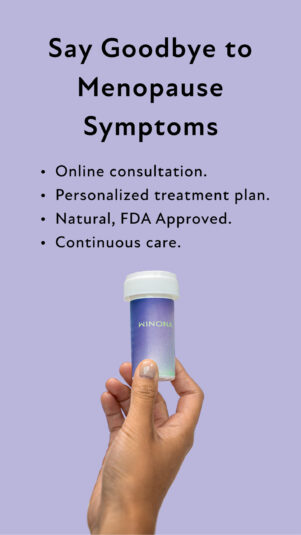Menopause, a natural phase in a woman’s life, signifies the end of reproductive years. While it’s a transformative journey, it often comes with a range of physical and emotional challenges. Many women are seeking alternative approaches to manage menopausal symptoms, and one such option that has gained attention is CBD (cannabidiol). In this blog article, we’ll delve into the potential benefits of CBD for menopause, while also considering potential risks and how it may offer support during this significant life transition.
Understanding CBD and Its Effects
CBD is a non-psychoactive compound derived from the cannabis plant. It interacts with the endocannabinoid system, a complex network of receptors in the body responsible for maintaining balance and homeostasis. CBD’s interaction with these receptors can influence various bodily functions, including mood, pain perception, sleep, and inflammation.
The Potential Benefits of CBD in Menopause Support
Managing Hot Flashes and Night Sweats: Hot flashes and night sweats are common and often disruptive symptoms of menopause. CBD’s potential to regulate body temperature and influence serotonin receptors may contribute to a reduction in the frequency and intensity of these episodes.
Mood Stabilization: Hormonal changes during menopause can lead to mood swings, anxiety, and depression. CBD’s interaction with neurotransmitter receptors, such as serotonin and GABA, may promote a sense of calm and emotional balance.
Bone Health: Menopause is associated with a decline in bone density, increasing the risk of osteoporosis. CBD’s potential to support bone health through its influence on cannabinoid receptors may contribute to maintaining bone strength.
Sleep Improvement: Sleep disturbances are common during menopause. CBD’s ability to interact with receptors related to sleep-wake cycles may aid in improving sleep quality and duration.
Pain Relief: Menopause can bring about joint and muscle discomfort. CBD’s anti-inflammatory properties may offer relief from pain and inflammation, enhancing overall comfort.
Potential Risks and Considerations
Interaction with Medications: CBD may interact with certain medications, including blood thinners and anti-seizure drugs. It’s crucial to consult with a healthcare provider before incorporating CBD into your regimen, especially if you’re taking other medications.
Quality and Regulation: The CBD market is relatively new and not fully regulated. Choosing reputable brands that undergo third-party testing for potency and purity is essential to ensure you’re getting a safe and reliable product.
Individual Responses: The effects of CBD can vary from person to person. Some individuals may experience side effects such as dry mouth, changes in appetite, diarrhea, or fatigue. Starting with a low dose and gradually increasing can help mitigate potential adverse effects.
Incorporating CBD into Menopause Management
Before incorporating CBD into your menopause management plan, it’s crucial to consult with a healthcare provider. They can assess your individual health needs, current medications, and potential interactions. If CBD is deemed suitable, here are some considerations:
Choose Quality Products: Opt for reputable CBD products from trusted sources that undergo third-party testing for potency and purity.
Start Low and Go Slow: Begin with a low dose of CBD and gradually increase as needed to determine your optimal dosage.
Consistency is Key: CBD may take time to build up in your system, so consistent use is important for experiencing potential benefits.
Monitor and Adjust: Keep track of how CBD affects your symptoms and make adjustments based on your experiences.
While research on CBD and menopause is still evolving, there is promising anecdotal evidence and some studies suggesting its potential benefits. As you explore options to navigate menopause with grace and comfort, consider discussing CBD with your healthcare provider, particularly in light of potential risks. Remember that each woman’s experience is unique, and finding the right approach to menopause support is a personal journey. CBD may offer a natural and holistic avenue to ease the transition and enhance your well-being during this significant phase of life, but it’s essential to make informed decisions with the guidance of a healthcare professional.









